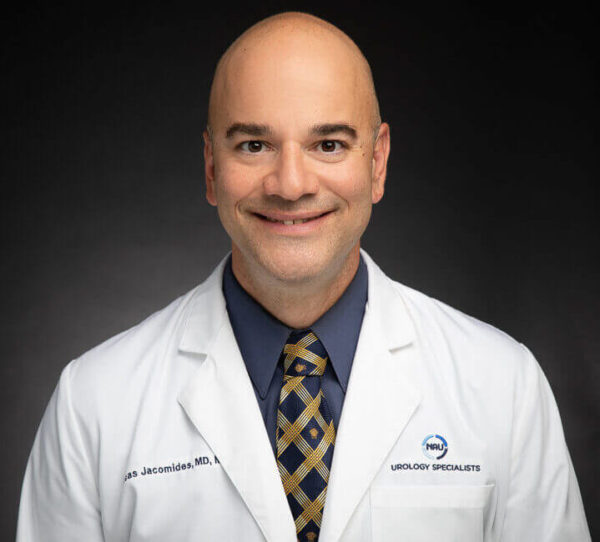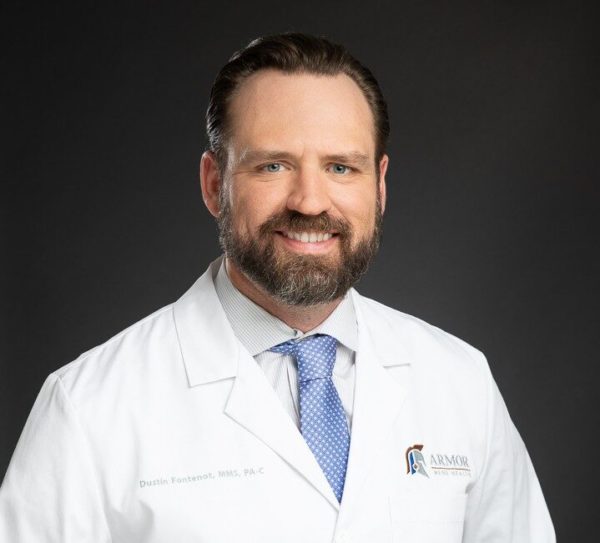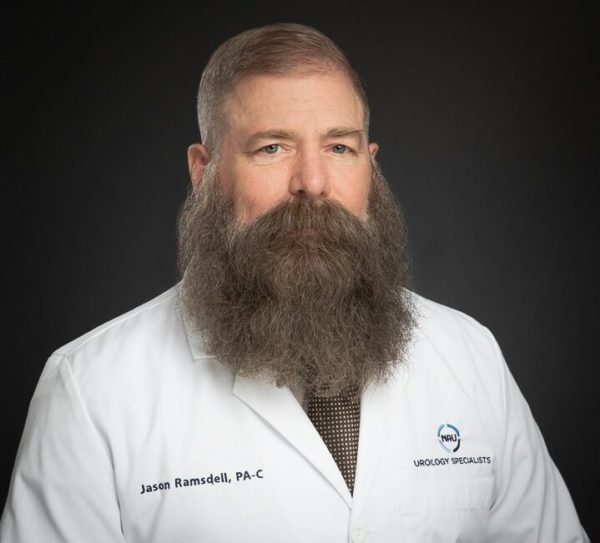
Know the symptoms and treatment options for enlarged prostate
An enlarged prostate, called benign prostatic hyperplasia or BPH, is a male condition in which the prostate gland has grown larger than its normal size. “Benign” in the name means it is noncancerous. It is the most common prostate diagnosis for men over 50, and one of the more common conditions treated by our Austin urologists.
The exact cause of BPH is not known, but researchers agree it is related to changes in hormones that occur as a man ages. There is a direct correlation between age and incidence of benign prostatic hyperplasia. By age 51, BPH affects 50% of men, and 90% of men develop BPH by age 80.
Risk factors for BPH
Among men with this condition, there are often common risk factors.
- Older than age 40
- Family history of BPH
- Medical history including obesity, heart disease, circulatory problems, type 2 diabetes or erectile dysfunction
- Lack of physical exercise
Symptoms of benign prostatic hyperplasia
Fewer than half of men with BPH experience symptoms. However, as the prostate grows, it can cause complications, including damage to the bladder from trying to pass urine through blockages caused by the prostate.
Men with an enlarged prostate may notice some of these symptoms.
- Frequent need to urinate
- Urgent need to urinate
- Urine flow problems
- Difficulty starting a stream
- Dribbling urine when finished
- A weak stream of urine
- Unable to empty the bladder completely
- Leaking urine (incontinence)
- Frequent need to urinate overnight (nocturia)
- Pain with urination
- Pain after ejaculation
- Unusual smell or color to the urine
If you experience any of these symptoms, our Austin urologists recommend you make an appointment to have your prostate checked.
Diagnosing BPH
When diagnosing this condition, our Austin urologists will take a medical and family history. The doctor also will perform a rectal exam to feel part of the prostate for enlargement, tenderness or abnormalities.
The urologist may also run tests.
- Urine tests for flow rate, ability to empty your bladder, and infection
- Prostate-specific antigen (PSA) test
- Kidney function test
- Cystoscopy to look inside the urethra and bladder
- Ultrasound of the prostate
- Biopsy to test for prostate cancer
Complications of an enlarged prostate
For some men, as the prostate grows, they experience worsening symptoms that can lead to additional health complications that require medical treatment. Men with BPH should be aware of certain associated complications.
- Inability to urinate (urinary retention)
- Urinary tract infection (UTI)
- Blood in the urine
- Urinary stones
- Kidney damage
- Bladder damage
Treating BPH
Because more than half of men with an enlarged prostate do not experience symptoms, most will never require treatment for it. For men affected by symptoms of BPH, the treatment will be determined by the severity of the symptoms and the impacts on health and quality of life.
For mild symptoms, the urologist may recommend lifestyle changes, such as bladder training, managing fluid intake, and avoiding alcohol and caffeine. Medications that stop prostate growth, shrink the prostate, and improve urine flow are another potential treatment.
Medical procedures and surgery are available options for men experiencing more significant symptoms. Our Austin urologists will determine the appropriate procedure based on the patient’s health, size of the prostate, and specific symptoms. A transurethral resection of the prostate (TURP) is the most common surgical treatment for BPH. In this procedure, a scope is used to reduce the size of the prostate to relieve symptoms.
BPH is hard for a man to avoid as he ages, but regular checkups and being aware of symptoms can help you improve your prostate health. For more information about enlarged prostate or benign prostatic hyperplasia, contact North Austin Urology.














